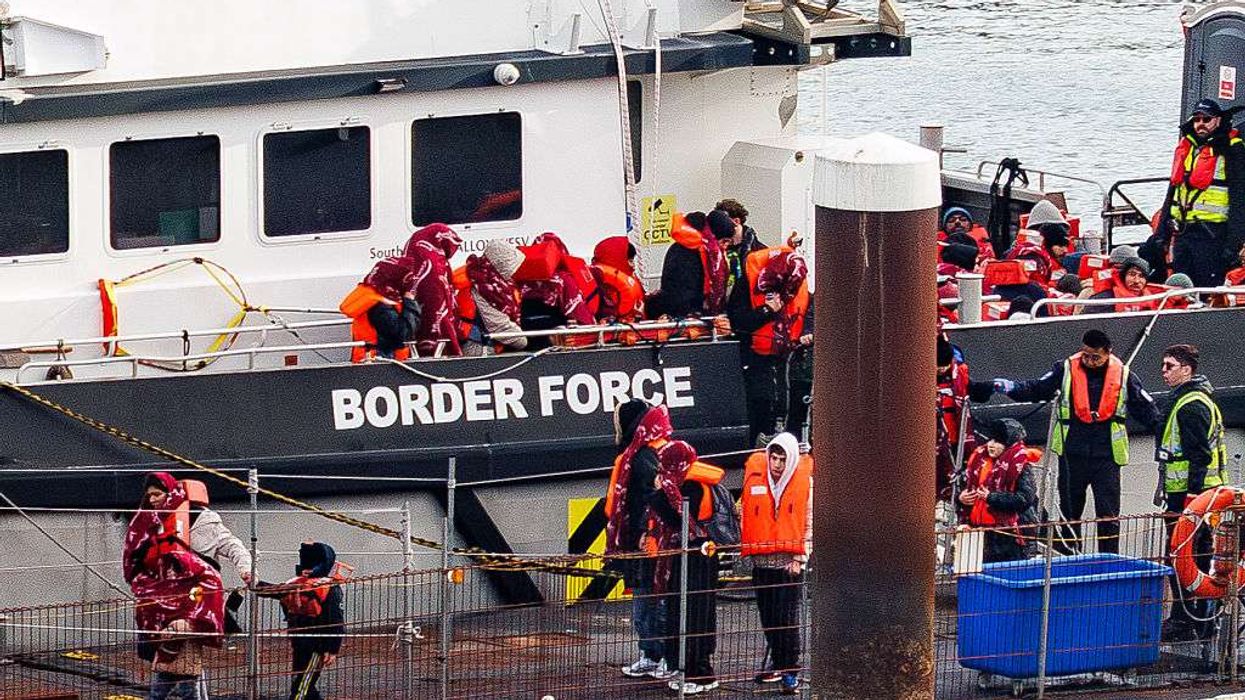by LAUREN CODLING
ACTRESS Indira Varma is set to be reunited with her Game of Thrones co-star Emilia Clarke in a new play due to premiere in London next week.
Varma stars in The Seagull, a newly adapted version of the classic Anton Chekhov play. First premiered in 1896, The Seagull is described as a tale of love, jealousy and regret which centres on several characters who are dissatisfied with their lives.
Varma plays Irina Arkadina, an actress and mother who struggles to balance her work and her family life. “It is always nice to be reunited with people that you know,” Varma told Eastern Eye. “It is nice to have the familiarity and the feeling that you’ve got your mates back again.”
Varma’s co-star Clarke makes her West End debut in the role of Nina Zarechnaya. Clarke played fan-favourite Daenerys Targaryen in the hit HBO series Game of Thrones, which ended last year after eight seasons.
However, despite the pair having significant roles in the fantasy show, Clarke’s character only met with Varma’s in the penultimate season.
Next week’s West End show also reunites Varma with director Jamie Lloyd (with whom she has worked previously), as well as actor Robert Glenister, who plays Sorin in the play. Lloyd, who has been credited with drawing new audiences to theatre, offered 15,000 tickets priced at £15 for those under 30s, key workers and people receiving government benefits across his season run at the Playhouse.
“(Jamie Lloyd) is so brilliant at making theatre accessible for people who don’t usually go to it,” Varma said. “He is doing some remarkable work there.”
Varma’s venture into the entertainment industry came in the form of Kama Sutra: A Tale of Love, an Indian historical erotic romance film (1996) directed by Indian American Mira Nair. The controversial film – it remains banned in India due to its sexual content – propelled her into the limelight. Since then, Varma has starred in numerous successful films, televisions series and theatre roles.
Besides her stage roles, Varma is best known for her TV appearances in Luther and Carnival Row. Her performance as Ellaria Sand in the Game of Thrones gained the actress a new traction of fans. Varma, born to an Indian father and a Swiss mother, acknowledged the lack of opportunities for women of colour when she first started out in the career. It was “almost niche,” she said, to have an ethnic minority female star in a lead role on stage.
However, she believes things are changing. “I feel so happy that there are more opportunities and not just one Asian actor out there, there are many,” she said. But there are still some barriers to overcome, she acknowledged.
Earlier this year, Varma took part in an initiative which saw stars give alternative nominees for the BAFTA film awards after criticism that their nominations lacked diversity. She nominated French actress and director Mati Diop for her film Atlantique. Varma explained why she decided to get involved.
“I think the BAFTAs have in recent years been a bit exclusive,” she said.
In an interview last year, Asian actress Preeya Kalidas told Eastern Eye of her admiration for Varma who took “risks in (her) roles.” Although Varma admitted she lacked the “luxury of choice” when starting out, she stressed her determination to “keep learning and keep getting better”.
“I’ve always been keen on good material or doing something I’ve never done before and I don’t like the idea of repeating myself,” the actress said. “I always want to be better. I think you can only do that by pushing yourself and taking risks, so I’m trying.”
Growing up in Bath, Varma was a regular theatre goer. “It was only a quid back then,” she recalled. She began to pursue drama at an early age – the actress took part in the Musical Youth Theatre Company as a teen and later graduated from the Royal Academy of Dramatic Art (RADA).
As she took on roles, Varma looked up to a number of people in the industry, including Dame Maggie Smith whom she described as a “goddess, because she was so funny as well as an incredible stage actress.” Stars such as Juliette Binoche, Gerard Depardieu and Robert de Niro also provided Varma inspiration. Her love of acting stemmed from childhood, she revealed.
Every child acts, she explained, whether that is by playing with dolls or friends. “We are constantly pretending to be other people and role playing. I think kids will always do it because that is how you learn,” she said. “You learn to understand different experiences of situations you may be in, or what other people may be in. From there, I think it has just never really stopped. I’m still playing.”
The Seagull will be showing at the Playhouse Theatre, London, from March 11 until May 30












